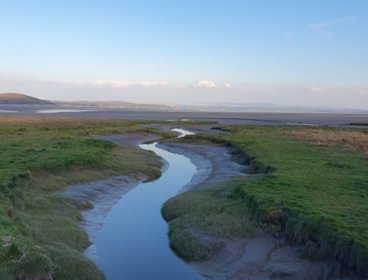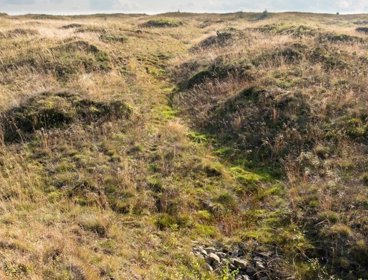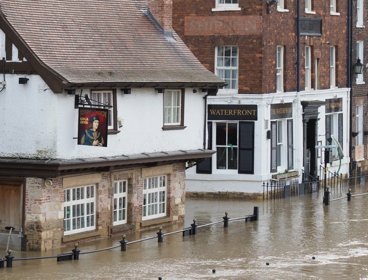By Sam Staddon, University of Edinburgh
Biodiversity conservation; or the protection of plants, animals and habitats, is important to doing geography. Conservation is ultimately about places and people, about relationships between nature and society, and about connections across space and time. It is about both physical and social processes, and so is of interest to both physical and human geography. Conservation, in fact, demonstrates the inherently interdisciplinary nature of geographic enquiry.
Right now, more than ever, conservation is an important consideration for geographers. Scientific data and so-called ‘traditional’ or ‘local’ ecological knowledge points to a ‘biodiversity crisis’. Countless species are experiencing population declines, whilst habitats are being degraded and destroyed around the world. Not only is this a concern for non-human nature itself, but also for the people who depend on that nature for livelihoods and well-being. International initiatives and agendas are pushing for an increase in the amount of area set aside for conservation, namely the 30 x 30 campaign which aims to see 30% of the world’s land and oceans set aside as ‘protected areas’ by the year 2030. Others are promoting ‘rewilding’, ‘natural capital’ and ‘nature-based solutions’ as ways in which to protect nature. Physical geographers can contribute to these goals through ecological and environmental survey work, and through expertise in geospatial and mapping technologies.
Conservation is about the management, allocation of and access to land and ‘natural resources’. Ultimately, this impacts what or who benefits from land or sea, and what or who suffers the burdens of interventions in the name of conservation. Protection is thus inherently political, and human geographers can be interested in the social and cultural impacts of conservation, particularly that based on protected areas (if certain people are denied access to those spaces or resources), or where ‘human-wildlife conflicts’ occur. Along with ‘political ecologists’, human geography research can help expose and articulate the colonial, racist and violent practices and outcomes of some conservation. Human geographers can be interested in the knowledge and efforts of indigenous peoples and local communities in the maintenance of biodiversity such as through Indigenous and Community Conserved Areas, in ‘alternative’ approaches to conservation centred on social justice such as Convivial Conservation, and in attempts to ‘decolonise’ conservation. Human geographers are well placed for such research, working through a range of social science methods, as well as through efforts in story-telling and through ‘Participatory Action Research’.
There is much great geographic research into conservation, both in the UK and around the world. My own interest in geographies of conservation stem from my early career and academic training as a conservationist, and from a belief that attempts to conserve biodiversity should not cause or reinforce social injustices. My work focuses on conservation in Scotland and in Nepal, and takes a critical social science perspective using qualitative human geography methods and theories from the related field of feminist political ecology. Some of my research has focused on the value of listening in and for conservation in order to promote inclusion and collaboration, and of the importance of dialogue and ‘having a blether’ (a colloquial Scottish expression for ‘a friendly chat’) to promote greater understanding across so-called ‘silos’ in nature conservation. My long term engagement in Nepal on the ways in which justice is recognised in conservation and forestry has developed into participatory action research that involves working with practitioners in collective ‘critical reflective learning’. My interest in reflecting on the ‘positionality’ and power of conservationists and geographers is captured in a recent book chapter and through a session at the POLLEN Asynchronous Workshop series on Cultivating Critical Reflexivity for Conservation.
Recommendations and suggestions
-
Conservation offers geographers from a wide range of sub-disciplines and methodologies a great topic of study, and one which is increasingly significant globally.
-
Conservation is an inherently political issue as it is about choices in the use of and access to land and oceans; this should be recognised by all geographers working on conservation.
-
Working with conservationists offers the best chance for your geographic research to have ‘real world’ impacts.
How to cite
Staddon, S. (2023) Biodiversity conservation. Working with voluntary and community groups. Royal Geographical Society (with IBG) Guide. Available at: https://doi.org/10.55203/PFWD5893
About this guide
Working with voluntary and community organisations for some is a very important way to do geography. These organisation come in various shapes and sizes and may also often be referred to as the third sector, the voluntary sector, not-for-profit organisations, community groups or the civic sector. In this guide, we share the experiences of researchers doing geography in collaboration with community and voluntary organisations. A range of topics and issues are explored from health, disability and care, through to austerity, violence, and craft, amongst others. We learn about the approaches taken by geographers in their work with community and voluntary organisations, and some of the challenges they have negotiated in the process.



